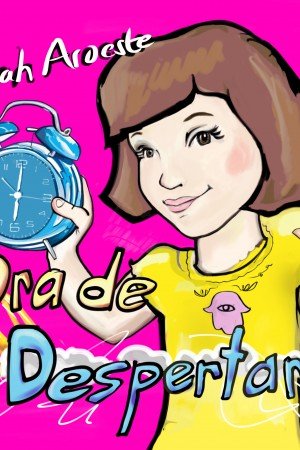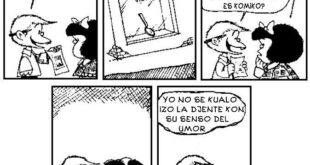Wake Up and Stretch Tradition: Ladino Songwriter and Vocalist Sarah Aroeste’s Playful, Original Take on Children’s Music is a Call to Treasure an Endangered Jewish Culture
lbum, songbook, and animated shorts release on March 25, 2016

When singer and Ladino music champion Sarah Aroeste was getting ready to have her first child, she was shocked: She wanted to sings songs for and with her daughter, but couldn’t find any Ladino songs that fit. So she wrote her own.
These songs came together on the whimsical Ora de Despertar (“Time to Wake Up”; release: March 25, 2016), a fun-loving album with a serious goal of keeping the flame of Ladino language and culture burning. “Although I didn’t grow up speaking Ladino myself, I heard my relatives speak it,” explains Aroeste, whose family roots hail from Greece and Macedonia. “This is one of the few albums of completely original songs in Ladino,” a language spoken by Sephardic Jews around the Mediterranean, linguistically close to Spanish, “and almost certainly the only one written expressly for children.”
“My desire in writing this album was to fill the gap,” she continues. “To share with my daughter music from her heritage that she would relate to. The way we transmit culture has changed so much. I’m incredibly worried that if we don’t start switching gears toward children and education, our beautiful Ladino tradition will get lost. For kids, the title track is simple, playful, but for us grownups, it’s a serious wake-up call.”
Aroeste balances the goofy, catchy topics kids love, from animal sounds (“Kuantos Animales”) to favorite mealtimes (dessert, of course; “Las Komidas”), with intimate tributes to love and parenthood, in two original lullabies that expand the Ladino tradition. The arrangements are upbeat and engaging, with contemporary sounds and instrumentation, an approach that reflects Aroeste’s ongoing efforts to reinvigorate Ladino music and to write new material with centuries-old roots.
 Though they were often sung when multiple generations gathered around a laden table or at other family get-togethers, most Ladino songs aren’t exactly family-friendly fare. Sensual and direct, the epic tales involve high drama, marital infidelity, and other topics not usually found in children’s music.
Though they were often sung when multiple generations gathered around a laden table or at other family get-togethers, most Ladino songs aren’t exactly family-friendly fare. Sensual and direct, the epic tales involve high drama, marital infidelity, and other topics not usually found in children’s music.
The songs related to children’s experiences are few and far between, albeit gorgeous. “There are a few beautiful lullabies that a lot of people know,” explains Aroeste, “and there are some playful songs by contemporary songwriters like Flory Jagoda,” who wrote “Ocho Kandelikas,” a beloved Hanukkah tune.
Aroeste, however, envisioned something different, the kind of ditties she heard on the stack of albums friends and family gave her baby daughter. Little snippets of melodies came to the singer, who has won widespread acclaim for her virtuosic interpretations of traditional songs. But it took several years for the project to come to fruition.
“When I finally decided to go for it, I realized I’d never written for kids before, recalls Aroeste. “I had no idea what would fly. It’s a totally different style melodically, lyrically, to make music especially for children. I came up with a list of very general topics that I thought would work well for a children’s song, the words and concepts. ”
Finding the words, it turned out, was no simple task. Aroeste crafted the lyrics herself, then shared her drafts with Ladino native speakers. She uncovered a fascinating divergence of opinions: Someone from Rhodes would insist you had to say something one way, while someone from Izmir had a completely different idiom for the same thing.
“Finally,” Aroeste says, “one of my advisors told me to do what sounded best to me, as they were my poems, my songs. I had to make the decision for myself.”
In the end, Aroeste found the right turn of phrase to fit her sprightly melodies. Some songs are geared for the youngest listeners, filled with fun-to-sing lines (like “Mi famiya”), while some aim for more sophisticated, slightly older children, adding a bit of silliness to the learning process (such as “Nochada Buena”). Some of the most moving tracks chronicle Aroeste’s own moments as a mother and a mother-to-be. The lullaby “Kualo Tienes?” sprang from a particularly tear-filled evening, when Aroeste longed to soothe her little one, and “Komo vas a ser?” reflects Aroeste’s musings as she thought of her still in-utero daughter’s future.
The recording process was also intimately connected to motherhood for Aroeste. “I ended up recording it in my living room, when I was 8 months pregnant with my second daughter,” she recalls. “My musical arranger and collaborator had laid down the tracks in Israel and New York, and he brought a kick-ass mic to our house. In the middle of the chaos of toddler toys, I recorded,” giving Aroeste’s voice the right friendly intimacy.
To bring the music to as many listeners as possible, be they Jewish, Ladino-speaking, or simply curious, Aroeste worked with a Spanish animator to make appealing videos that illustrate the action of each song. She also has a songbook to make singing along a breeze, and plans to make board books adults can enjoy with youngsters.
“I feel so strongly about this album, this project,” Aroeste states. “There are no other Ladino resources for children, and people want them. They are interested in this culture and are struggling to figure out how to keep the tradition alive. I truly believe that cultural transmission will only happen if we get creative about the transmission process.”
«Las Komidas,» the first single off Sarah Aroeste’s upcoming all-original Ladino children’s album,
«Ora de Despertar» (Time to wake up) out early 2016.
Available on iTunes: https://itunes.apple.com/us/album/las…
CD Baby: http://www.cdbaby.com/cd/saraharoeste5
Booklet
ora_de_despertar_booklet
 eSefarad Noticias del Mundo Sefaradi
eSefarad Noticias del Mundo Sefaradi

